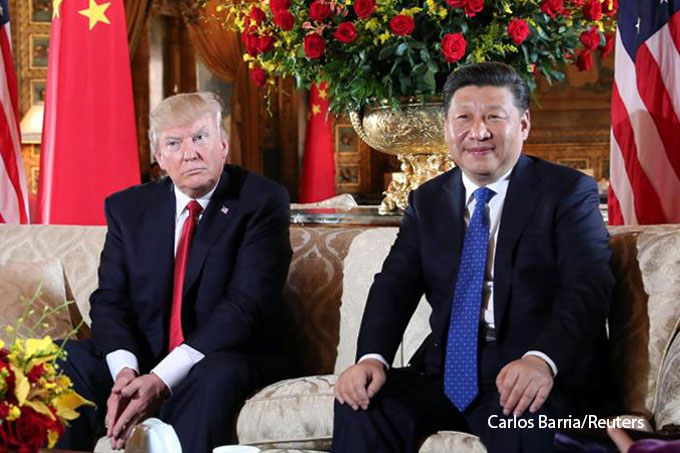Peter Vujakovic, Professor of Geography, explores President Donald Trump’s decision to withdraw from the 2015 Paris Climate agreement and the rise of China.
President Trump’s decision to withdraw from the 2015 Paris Climate agreement has created a vacuum in global moral leadership which China and the EU are quickly moving to fill. While Trump has argued he will make the US ‘great again’, this action, as he turns inward to his ‘rust belt’ constituency, is a further dent in America’s ‘ontological security’ – its positive self-image as a global power. This is made clear by the negative responses to his decision from American businesses, from Mark Zukerberg of Facebook to giant companies such as Exxonmobil and Chevron.
The real story here is China’s rise. It has gained in confidence as a global player since the 1990s as its economy has grown to become one of the largest in the world. It now sees itself as a major regional and world power, an ancient civilization emerging to greatness again. China suffered what is known as the ‘century of humiliation’, first under European power including Britain in the 19th century, and then under Japan until the successful communist revolution of 1949. It is now emerging from a long period of ontological insecurity to become a self-assured actor on the global stage. Much of its assertive behaviour in areas such as the South China Sea may have as much to do with projecting its new identity and a response to US naval dominance, itself a lingering slight to its dignity, as an interest in the sea’s physical resources. Its new silk roads initiative, One Belt One Road, proposed by President Xi is a bold initiative to integrate trade across Asia, Europe and Africa. In May President Xi held a meeting of heads of state to launch the initiative, following on from his strong defence of globalization at Davos in January. On top of this, China is now a leading nation in terms of ‘green energy’ development.
The message is one of a ‘soft power’ China, which seeks environmental and political security at the global scale to ensure its and others economic future. This may be a positive development, but the underlying danger is how the US will respond. One fear, articulated by some international relations experts, is the ‘Thucydides trap’, in which a rising power will almost inevitably come to blows with the current hegemonic power (as Athens did with Sparta). President Xi, on a state visit to the US, dismissed this, saying it was not inevitable unless the protagonists actively allowed it. While we may remain concerned about some of China’s repressive measures at home, perhaps the West should accept China’s rhetoric as being genuine and see its rise as a positive development for all rather than a threat. At present, the real threat to environmental security actually appears to be the US, the second largest producer of global carbon emissions, as it turns its back on the rest of the world.
Peter Vujakovic is a Professor of Geography, in the School of Human and Life Sciences. His research interests lie in global geopolitics, and specifically in how issues are treated in the news media and through cartographic representations. He is currently working on news media images of the geopolitics of the South China Sea.
 Expert comment
Expert comment holly finch
holly finch 1265
1265


